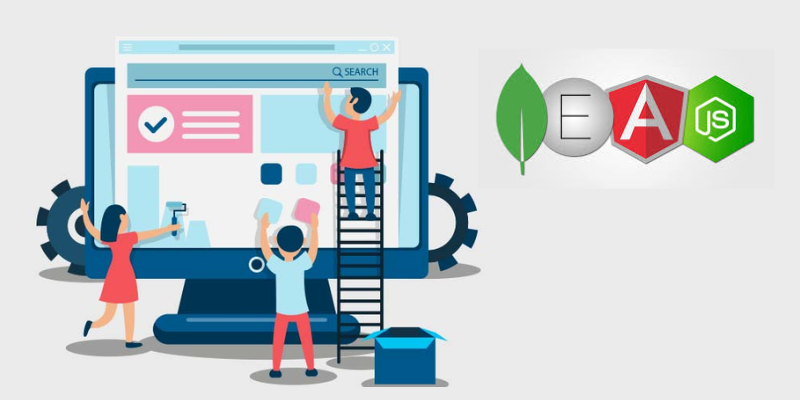
In today’s fast-paced digital environment, building scalable web applications is crucial for businesses of all sizes. As demand for real-time, data-driven apps increases, choosing the right technology stack is more important than ever. The MEAN Stack—a combination of MongoDB, Express.js, Angular, and Node.js—offers a powerful framework for developers to create scalable, efficient, and high-performance web applications. In this blog, we will explore how to build scalable web apps using the MEAN Stack and how it can be integrated with other technologies like MVC, Oracle, and VMware.
Understanding the MEAN Stack
Before diving into scalability, it’s important to understand the individual components of the MEAN Stack:
- MongoDB: A NoSQL database that allows for fast, flexible data storage and retrieval.
- Express.js: A web application framework for Node.js that simplifies server-side development.
- Angular: A frontend framework that enables developers to create dynamic, responsive user interfaces.
- Node.js: A runtime environment that allows for server-side scripting, enabling JavaScript to be used across the stack.
Each of these technologies plays a key role in the scalability of web applications. Enrolling in a MEAN Stack Training in Chennai program can help developers get familiar with these tools and their optimal use in scalable app development.
Why is Scalability Important?
Scalability refers to an application’s ability to handle increased loads—whether it’s more users, more data, or higher performance demands—without sacrificing functionality or speed. Scalability becomes especially crucial when developing applications for businesses that may expand over time or experience variable traffic loads.
MS Dynamics CRM, for example, requires high levels of scalability to handle an ever-increasing amount of customer data and interactions. A scalable web application can serve growing businesses without needing constant redesigns or redeployments.
Building Scalable Web Apps with MEAN Stack
1. Start with a Solid Backend
The backbone of any scalable web app is a well-architected backend. Node.js in the MEAN Stack enables developers to handle multiple requests simultaneously, thanks to its non-blocking architecture. This is crucial when building apps that need to serve thousands of users at once.
Additionally, Express.js allows developers to structure their server-side logic in a way that ensures smooth data flow and minimal delays. This combination of Node.js and Express.js is what makes the MEAN Stack ideal for scalable backend development.
2. Use MongoDB for Flexible Data Management
When it comes to managing data in a scalable web application, MongoDB offers significant advantages over traditional relational databases. Its document-based structure allows for flexible, schema-less data storage, which is perfect for applications that need to scale and adapt over time.
Moreover, if your application needs to interface with other databases, such as Oracle, understanding how to integrate these systems is essential. A good Oracle Training in Chennai program can help you master the skills needed to connect MongoDB with legacy databases for comprehensive data solutions.
3. Optimize Frontend with Angular
Scalability isn’t just about handling more users or more data; it’s also about ensuring that your app remains performant as it grows. Angular helps developers create responsive, fast-loading web apps that enhance the user experience. Angular’s component-based architecture allows developers to build reusable modules, improving both development speed and performance.
To further enhance user experience, you can integrate Angular with MVC (Model-View-Controller) architecture, which adds an additional layer of efficiency to the frontend. MVC Classes in Chennai can help you learn how to effectively use this design pattern to ensure scalability on the client side.
4. Leveraging VMware for Deployment
Once your app is ready to scale, you’ll need an infrastructure that can handle the increased load. This is where VMware comes into play. By virtualizing your server environments, VMware allows you to dynamically allocate resources based on demand, ensuring that your app remains responsive and available even during peak times. VMware Training in Chennai is essential for mastering the tools needed to deploy and manage your web applications in virtualized environments.
5. Using Excel for Data Management and Reporting
In scalable web applications, effective data management is key. While MongoDB handles your app’s real-time data needs, integrating Excel can help you manage reporting, analysis, and user-generated data in a more structured format. Many businesses rely on Excel Training in Chennai to ensure that their teams can generate real-time reports from large datasets, whether those reports are for internal use or customer-facing dashboards.
6. Integrating with MS Dynamics CRM
If your web application deals with customer data, integrating it with MS Dynamics CRM can improve your overall business operations. The MEAN Stack can be customized to sync with MS Dynamics CRM, offering a seamless flow of information between your web app and CRM system. This helps in centralizing customer data, streamlining workflows, and ensuring better customer service.
For developers working with CRMs, it’s essential to understand how to create scalable, secure, and efficient solutions. Getting Microsoft Dynamics CRM Training in Chennai will teach you the necessary skills to successfully implement these integrations.
Building scalable web applications with the MEAN Stack involves leveraging the strengths of MongoDB, Express.js, Angular, and Node.js for maximum efficiency and performance. Whether you’re integrating the app with tools like MS Dynamics CRM, handling complex data structures with Oracle, or deploying on virtual environments like VMware, the key to success is a well-thought-out architecture that ensures scalability at every stage.
